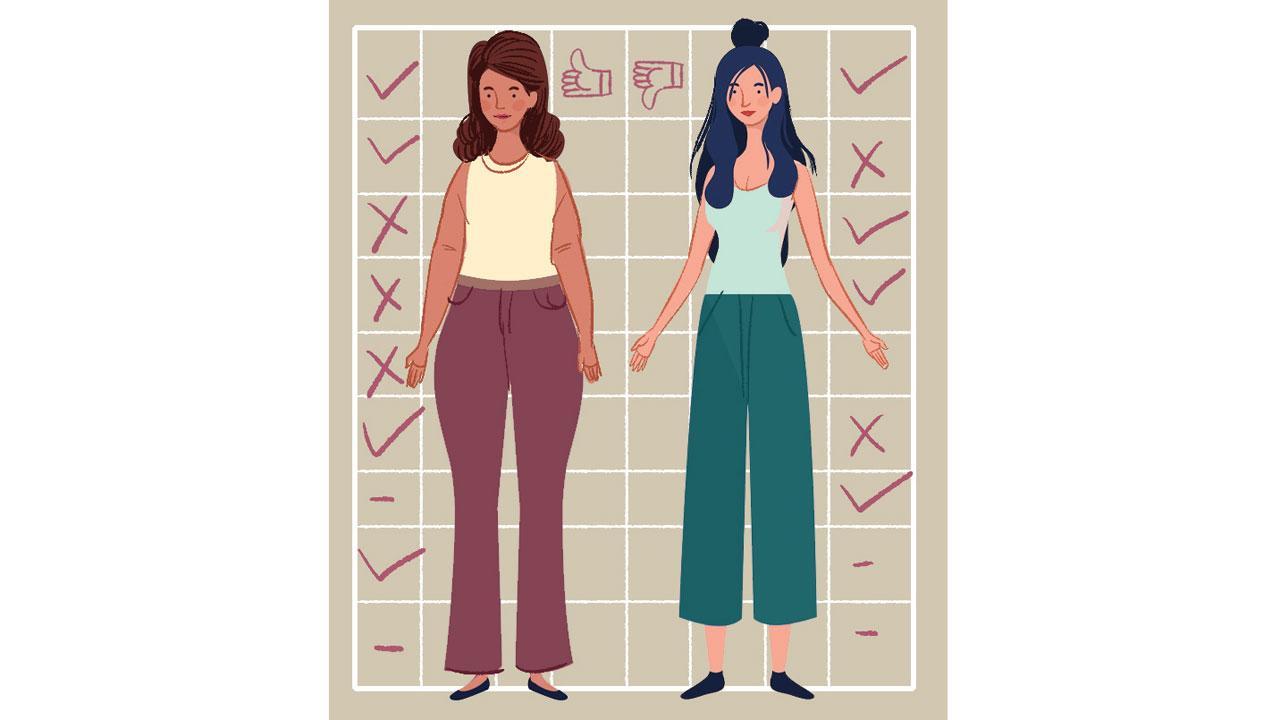When I run into her now and she gushes about my work, you can imagine how hard I find it to enjoy her compliments.

Illustration/Uday Mohite
![]() It seems very 2015 to like an advertisement with a social message nowadays. Such films have become a genre unto themselves. As with many templates, there is more virtue signaling than emotional resonance in their worthy messages which rarely rock any boats. I was moved after a long time though, by the new Dove soap advertisement.
It seems very 2015 to like an advertisement with a social message nowadays. Such films have become a genre unto themselves. As with many templates, there is more virtue signaling than emotional resonance in their worthy messages which rarely rock any boats. I was moved after a long time though, by the new Dove soap advertisement.
ADVERTISEMENT
The film features a number of regular adolescent girls, whose families busily subject them to flaw-fixes—fairness face packs, tight clothes to constrict your plumpness, no specs on stage. Sensitive and precisely observed moments put weight behind its statement that society needs to stop giving young girls a beauty report card. The subtext of so many things girls are told about how they should be, as the voice over says, is, “Padh likh ke layak bano nahin, kisi padhe likhe ke layak bano.” It’s all very well to be smart, witty or talented, but those are the side plots to the central narrative: a woman must be conventionally good looking, and must be chosen. Being yourself is never enough—but for whom?
These are such common experiences. I have received many calorie charts from well-meaning relatives and unsolicited looks of advice from strangers in buses. I have seen grown up women who can walk the feminist talk in many domains, scold their women friends for reaching out for an onion ring, or be snide about some woman’s appearance. The more corporate or upper class the context, the worse the lookism and shaming.
Even those of us who have consciously picked open those knots of prejudice and conditioning to express ourselves with freedom and flamboyance, and found communities of love and admiration, these moments remain like tiny glass shards lodged in your confidence, suddenly piercing you with self-doubt, inexplicable hesitations, even despair.
Many years ago I was interviewed by a news magazine about a film I had made. Their photographer took a wonderful, colourful photo of me. Later I learned the editor did not want the picture on the main page in their usual format because I was fat and not a certain kind of cool. When I run into her now and she gushes about my work, you can imagine how hard I find it to enjoy her compliments.
These things not only create a division within women, but also between women. The beauty versus brains dichotomy also means pretty women struggle to have other qualities noticed. Body positivity is now a more mainstream idea, but social media has, ironically, homogenised it. While it expands definitions of physical beauty, influencer economies mean it also conforms to a manicured, well made-up image featurable in special issues of lifestyle magazines, a template of alternative beauty rather than an alternative relationship with the body.
This does not quite let us ask a more radical question, which the Dove film alludes to: isn’t it fine that everyone is not beautiful, like everyone is not a poet or engineer? The enjoyment and appeal of people, desire itself, are based on a far more intricate web of meanings and feelings.
I mean there are days I feel beautiful, days I don’t and days where it’s not operating in my consciousness. I want all the days because they feature all the me’s. And I don’t really want them to be sponsored by anyone, not even Dove tbh.
Paromita Vohra is an award-winning Mumbai-based filmmaker, writer and curator working with fiction and non-fiction. Reach her at paromita.vohra@mid-day.com
 Subscribe today by clicking the link and stay updated with the latest news!" Click here!
Subscribe today by clicking the link and stay updated with the latest news!" Click here!







